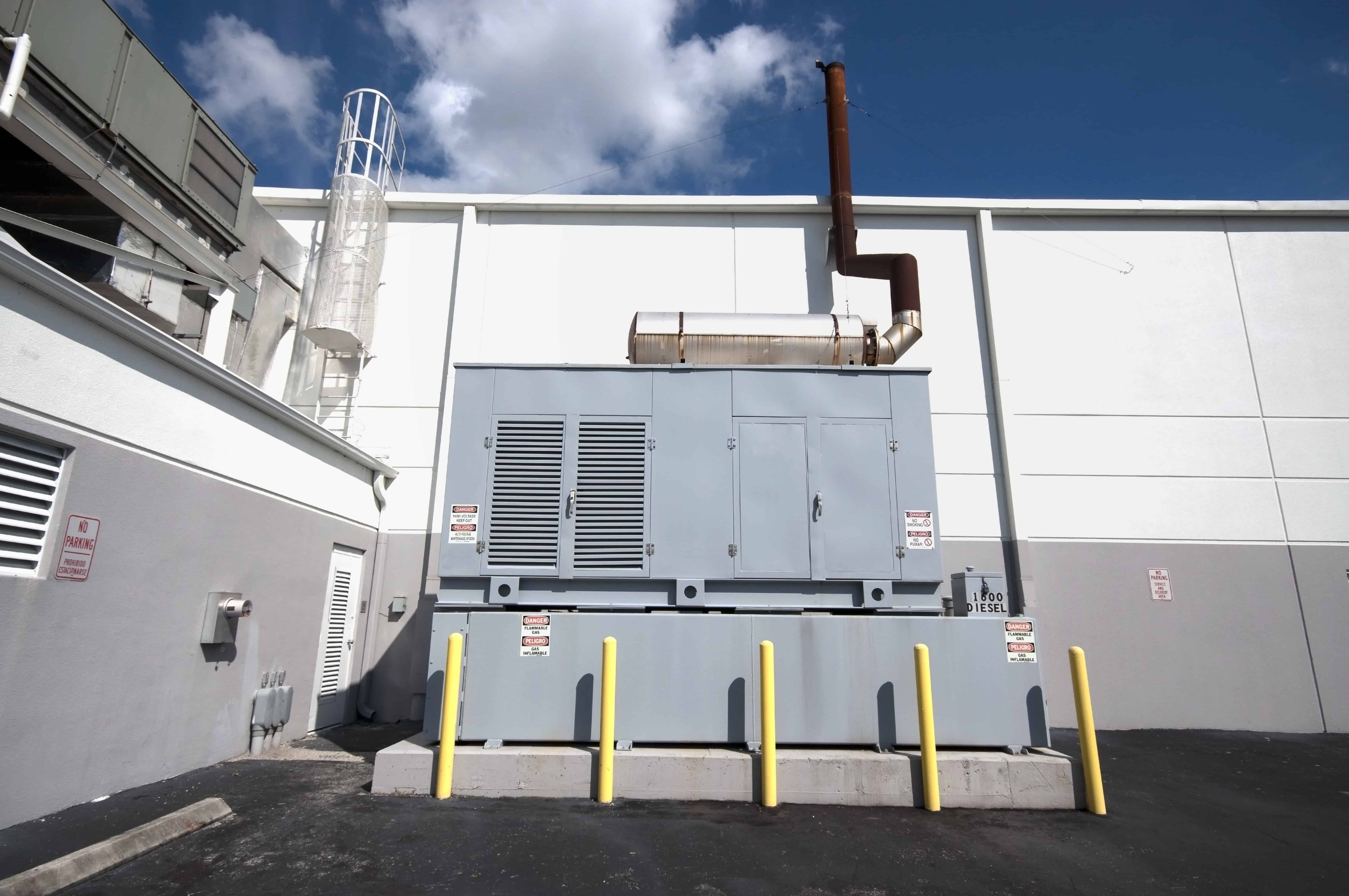Backup Generator fuel sources
While diesel remains popular as a fuel supply for backup generators, engineers have several additional fuel options from which to choose.
In the early days of commercial and industrial backup power, fuel choice was not an issue in the selection of a backup generator system because the preferred fuel was consistently diesel. Such is not the case today. Engineers and end users have several fuel options from which to choose, and each offers unique benefits in different applications.
Backup power generators are driven by internal combustion engines, which are in turn powered by fossil fuels. Diesel fuel has been used in backup power systems for decades. Gaseous fuels, such as natural gas or liquid propane, are gaining acceptance. Combining these fuels in unique ways provides additional fuel options. For example, dual-fuel generators run on either natural gas or LP vapor fuel, depending on which fuel is available at the time. Bi-fuel generators run on diesel fuel and natural gas simultaneously and leverage the benefits of each.
Gasoline is noticeably absent from this list because it is generally a poor fuel choice for backup power systems. Not only is it extremely volatile compared to diesel or gaseous fuel, making it problematic to store in quantity, but compared to diesel fuel it has a significantly lower thermal density. Additionally, gasoline cannot be easily used in combination with a gaseous fuel. As such, commercial and industrial backup power systems are never fuelled by gasoline.
Diesel Fuel
Among the diesel-engine advantages is its high thermal efficiency, which can yield a low capital cost per kW in large-kW applications typically 150 kW or more. Because diesel fuel must be stored on-site, diesel-fueled generators can also provide backup power in remote areas that do not have the benefit of a natural gas infrastructure. For the same reason, market segments with mission critical applications, such as hospitals and 911 call centers, often choose diesel-fueled generators because on-site fuel helps to ensure reliability. Finally, because diesel fuel has been used for so long in backup power applications, there is a perception within the market that diesel engines are the most reliable prime movers for backup power systems.
Natural gas
In the past, gaseous fuels were avoided in industrial backup power applications based on cost effectiveness, power density, and perceptions of durability and fuel reliability. However, recent technological innovations have changed that. These innovations include hardened valves and seats, and optimized air/fuel mixtures. Engine speed optimization has been a significant improvement. Historically, generators were configured for direct connection to a four-pole alternator that limited engine speed to 1,800 rpm. By implementing a gear-on-gear powertrain, or two-pole alternators as appropriate, generator manufacturers have been able to optimize the power and performance of spark-ignited engines. This has improved transient performance, reduced the stress on engine bearings, and increased power densities. In a nutshell, it means more powerful engines and reduced capital costs.
LP fuel
LP-fueled backup generator systems can run in either LP liquid or LP vapor configurations. LP vapor is perhaps the more prevalent in backup power systems. All of the general gaseous fuel benefits described earlier apply to LP fuel as well including lower cost per kW in single-engine backup power applications 150 kW and below. As a spark-ignited fuel, LP fuel runs in automotive-style engines adapted for its use.
Beyond the general benefits of LP as a gaseous fuel, LP must be stored on-site, just like diesel fuel. Thus, LP fuel might provide an acceptable gaseous-fuel alternative to diesel for applications requiring on-site fuel. Consulting engineers should also explore this with their customer prior to selecting a diesel-fuel solution. LP meets the same on-site requirements, but has the benefit of no fuel spoilage concerns.
Bi-fuel and Dual-fuel systems
One way to alleviate the reliability issues that invariably crop up when discussing on-site vs. utility-supplied fuel is to specify a system that makes use of both fuels either one at a time or simultaneously. Dual-fuel and bi-fuel backup generators fit these criteria.
As mentioned earlier, a dual-fuel system can operate on either LP vapor or natural gas fuel, depending on which is available at the time. The backup generator will typically start and run on natural gas fuel, and if that fuel supply is interrupted then it will switch over to the on-site LP fuel source. This configuration is very popular for generators up to 150 kW. For larger applications, a bi-fuel system that burns both diesel fuel and natural gas at the same time within a single engine is an attractive option
Contact us for servicing and installing backup generators.

